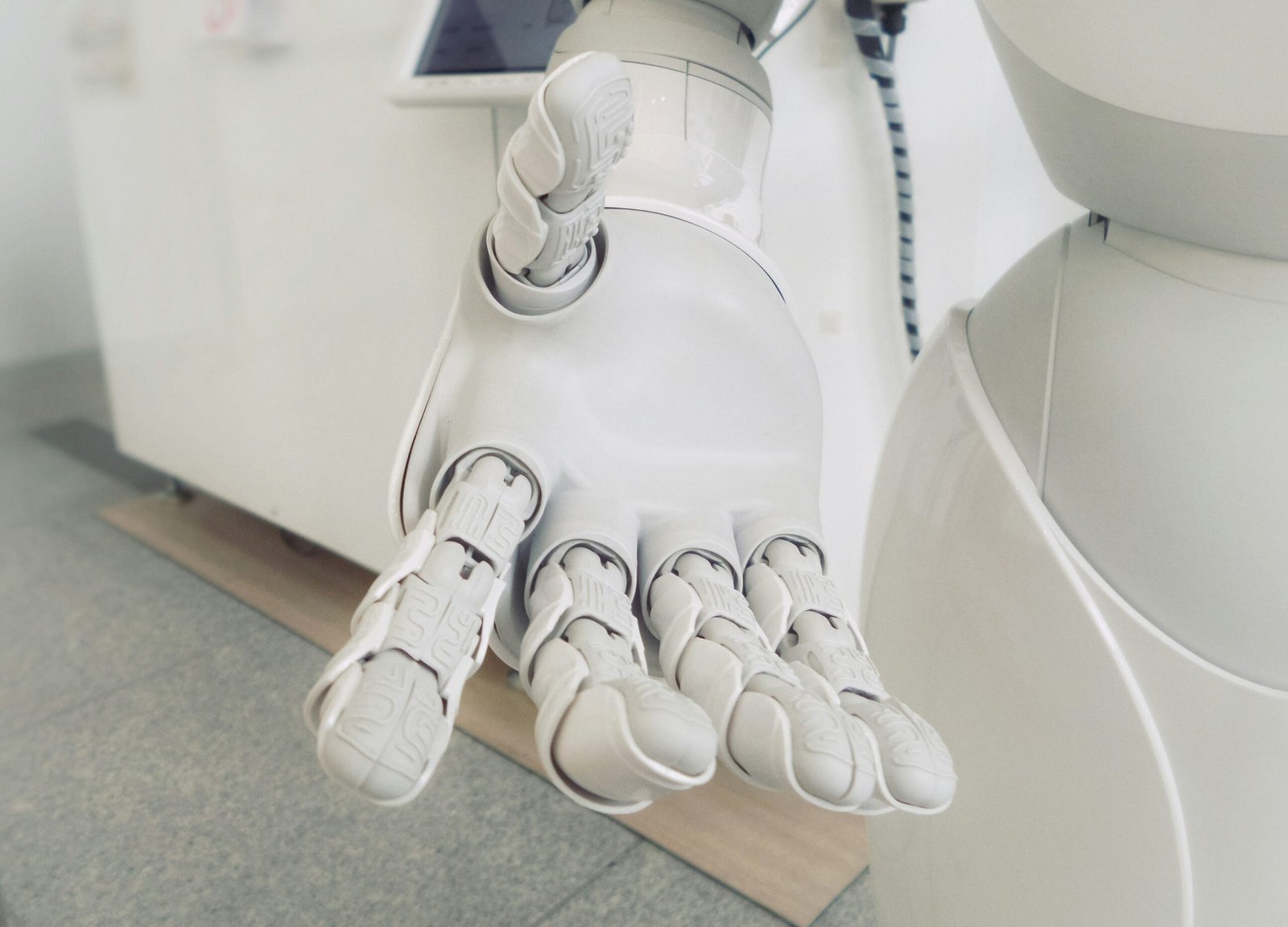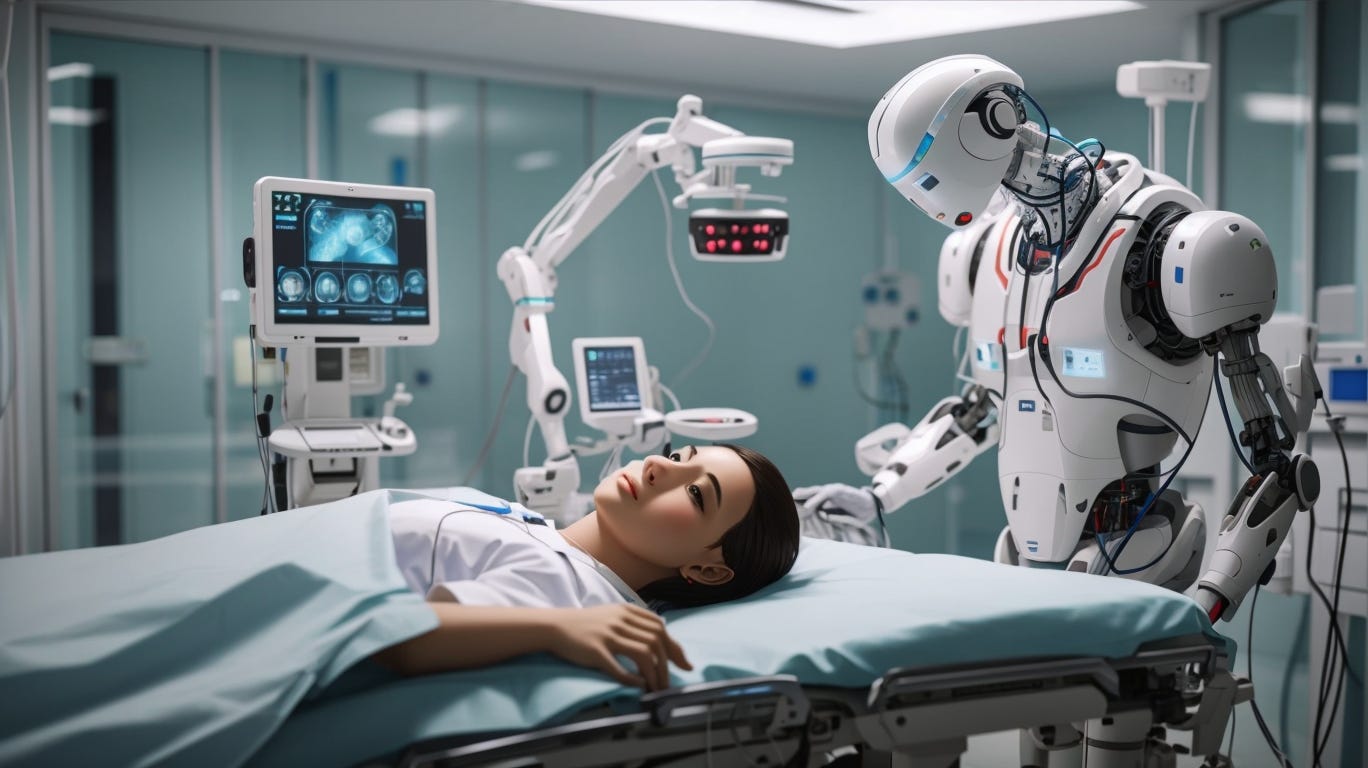
Introduction to AI in Healthcare
Artificial Intelligence (AI) is a transformative technology that is making significant inroads into the healthcare industry. At its core, AI refers to the simulation of human intelligence processes by machines, particularly computer systems. These processes include learning, reasoning, and self-correction, which are achieved through various subfields like machine learning, natural language processing, and robotics.
Machine learning, a subset of AI, enables computers to learn from and make decisions based on data. In healthcare, this is particularly useful for predictive analytics, disease diagnosis, and personalized treatment plans. Natural language processing (NLP) allows machines to understand and interact using human language, which has applications in patient data management and automated reporting. Robotics, another crucial subfield, is enhancing surgical precision and enabling remote medical procedures.
The integration of AI technologies in healthcare scenarios offers numerous potential benefits. AI systems can improve patient outcomes by providing precise and timely diagnoses, recommending personalized treatment options, and predicting disease outbreaks. Moreover, AI can streamline operations by automating administrative tasks, thus freeing healthcare professionals to focus more on patient care. Reducing costs is another significant advantage, as AI-driven efficiencies can lead to lower operational expenses and better resource allocation.
Historically, the evolution of AI in healthcare began with rudimentary expert systems in the 1970s, designed to mimic the decision-making abilities of human experts. Over the decades, advancements in computational power and data availability have propelled AI technologies to tackle more complex tasks. Today, AI applications in healthcare are becoming increasingly sophisticated, setting the stage for revolutionary changes in the industry.
As we delve deeper into the topic, subsequent sections will explore specific applications, challenges, and the future trajectory of AI in healthcare, providing a comprehensive understanding of how this technology is revolutionizing the industry.
AI Applications in Diagnostics and Treatment
Artificial Intelligence (AI) has emerged as a transformative force in the healthcare sector, particularly in the realms of diagnostics and treatment. AI algorithms are now integral in analyzing medical imaging, predicting disease outbreaks, and personalizing treatment plans. These advancements are not only enhancing the accuracy of diagnoses but also optimizing patient outcomes.
One of the most prominent applications of AI in diagnostics is its ability to detect early signs of diseases such as cancer. Advanced AI algorithms can analyze imaging scans—such as X-rays, MRIs, and CT scans—with a level of precision that often surpasses human capabilities. For instance, Google’s DeepMind has developed AI systems that can identify over 50 eye diseases from retinal scans, offering early intervention opportunities that can prevent blindness.
Beyond imaging, AI is also making strides in predicting patient risk factors through comprehensive data analysis. Machine learning models can sift through vast amounts of patient data, including electronic health records (EHRs), to identify patterns and predict potential health issues. This predictive capability is crucial for managing chronic diseases and preventing complications. For example, IBM’s Watson Health uses AI to analyze clinical data and predict the likelihood of sepsis, enabling timely interventions that can save lives.
Personalized treatment plans are another significant benefit of AI in healthcare. By leveraging big data, AI can recommend tailored treatment options based on an individual’s genetic makeup, lifestyle, and other personal data. This bespoke approach ensures that patients receive the most effective treatments with minimal side effects. The AI-driven platform Tempus, for instance, uses genomic sequencing and machine learning to provide oncologists with personalized cancer treatment recommendations.
Real-world case studies further underscore the impact of AI on diagnostics and treatment. In a study conducted by Stanford University, an AI model was able to diagnose skin cancer with the same accuracy as dermatologists. Similarly, the Mayo Clinic has employed AI to enhance the accuracy of its radiology diagnostics, significantly improving patient outcomes.
Overall, the integration of AI in diagnostics and treatment is revolutionizing healthcare. These technologies are not only enhancing the precision of medical diagnoses but are also paving the way for more personalized and effective treatment plans. As AI continues to evolve, its role in healthcare is set to expand, promising even greater advancements in patient care.
Challenges and Ethical Considerations
The integration of Artificial Intelligence (AI) in healthcare brings forth a myriad of challenges and ethical considerations that must be meticulously addressed to ensure its responsible and effective deployment. One of the primary concerns revolves around data privacy and security. Given the sensitive nature of healthcare data, ensuring robust mechanisms to protect patient information from breaches and unauthorized access is paramount. The healthcare sector must prioritize implementing stringent data encryption protocols and comprehensive cybersecurity measures to safeguard patient privacy.
Another significant challenge is the potential for algorithmic bias, which can result from unrepresentative training data or inherent biases in the AI models. Such biases can lead to uneven healthcare outcomes, disproportionately affecting certain patient groups. Ensuring that AI models are trained on diverse and representative datasets is essential to mitigate this risk. Additionally, continuous monitoring and refinement of AI algorithms are necessary to identify and rectify any emerging biases.
Transparency and accountability in AI decision-making processes are also crucial. Healthcare providers and patients need to understand how AI systems arrive at specific recommendations or diagnoses. This transparency fosters trust and allows for better-informed decision-making. Establishing clear guidelines and standards for AI transparency will help in building this trust. Furthermore, accountability mechanisms must be in place to address any errors or adverse outcomes resulting from AI applications in healthcare.
The regulatory landscape for AI in healthcare is still evolving. It is imperative for policymakers to develop comprehensive regulations that address the unique challenges posed by AI technologies. These regulations should encompass aspects such as data handling, algorithmic fairness, and patient safety, ensuring that AI applications adhere to the highest standards of ethical practice.
Lastly, the advent of AI in healthcare will have significant implications for the workforce. While AI has the potential to automate routine tasks, there are concerns about job displacement. However, it also opens up opportunities for new roles that require specialized skills in AI and data analysis. Healthcare professionals will need to acquire new competencies to effectively collaborate with AI systems, ensuring that they can leverage these technologies to enhance patient care.
The Future of AI in Healthcare
As we look to the horizon of AI in healthcare, the potential for groundbreaking advancements is immense. One of the most promising areas is predictive analytics, which leverages vast datasets to forecast patient outcomes, disease progression, and potential complications. By analyzing patterns in patient data, AI can anticipate health issues before they manifest, enabling proactive interventions that could save lives and reduce healthcare costs.
Remote patient monitoring is another emerging trend poised to transform healthcare delivery. With AI-powered devices, clinicians can continuously track vital signs and other health metrics, providing real-time insights into a patient’s condition. This technology not only enhances the ability to manage chronic diseases but also reduces the need for frequent hospital visits, thus alleviating the burden on healthcare facilities and improving patient convenience.
Telemedicine, augmented by AI, is set to redefine patient care. AI-driven platforms can facilitate virtual consultations, diagnose conditions through image recognition, and even recommend personalized treatment plans. Such innovations are particularly crucial in extending quality healthcare to remote and underserved areas, bridging geographical barriers that have traditionally limited access to medical expertise.
As AI continues to evolve, it holds the promise of enhancing patient care through precision medicine. By integrating genetic information, lifestyle data, and environmental factors, AI can tailor treatments to individual patients, increasing efficacy and minimizing side effects. This personalized approach signifies a paradigm shift from one-size-fits-all treatments to bespoke medical care.
Moreover, AI has the potential to revolutionize medical research by accelerating drug discovery and development processes. Machine learning algorithms can analyze vast amounts of data at unprecedented speeds, identifying potential compounds and predicting their interactions with human biology. This capability could significantly shorten the time required to bring new drugs to market, offering hope for faster responses to emerging health threats.
Importantly, AI’s democratizing effect on healthcare cannot be overlooked. By making advanced diagnostics and treatments more accessible, AI can help reduce disparities in healthcare access and outcomes. For instance, AI-powered diagnostic tools can be deployed in low-resource settings, providing high-quality care where it is needed most.
To harness these transformative potentials, it is imperative for stakeholders in the healthcare ecosystem to embrace AI while addressing its challenges. Ensuring data privacy, mitigating biases in AI algorithms, and fostering interdisciplinary collaboration are critical steps to creating a more effective and equitable healthcare system. The future of AI in healthcare is not just about technological innovation; it is about building a healthcare system that is inclusive, efficient, and responsive to the needs of all patients.

